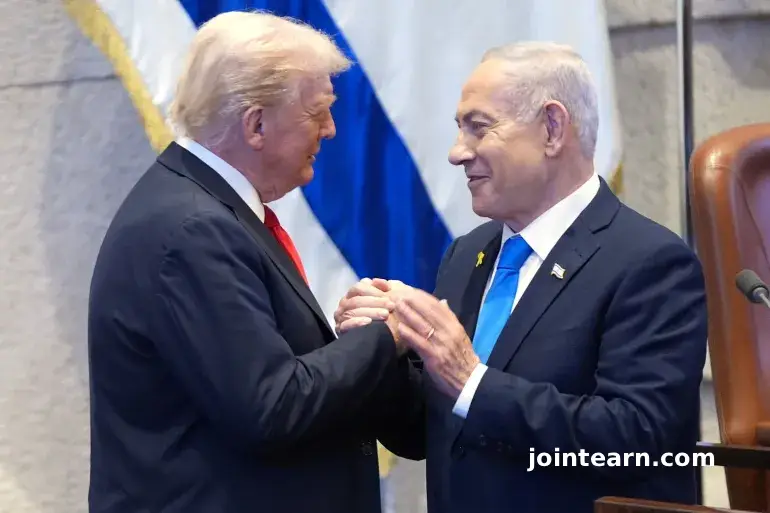
The Gaza ceasefire agreement has sparked debate about whether the international community is ready to rehabilitate Israel’s global image, even as widespread allegations of atrocities remain unresolved. Analysts warn that denial within Israel and a rush by Western allies to normalize relations may obscure the human cost of the conflict.
Gaza Ceasefire Seen as Opportunity for Israel
Following over two years of military operations in Gaza, which have left more than 67,900 Palestinians dead and 170,000 injured, Israel views the ceasefire as a chance to restore diplomatic and economic ties weakened by international outrage. The conflict has destroyed or damaged 92% of Gaza’s residential housing and contributed to famine conditions in the enclave.
International bodies and Israeli human rights organizations, including B’Tselem and Physicians for Human Rights Israel (PHRI), have condemned Israel’s actions as genocide. A UN commission of inquiry in September 2025 confirmed these concerns. Yet, Israeli officials continue to deny wrongdoing.
During a Knesset session marking the ceasefire, opposition leader Yair Lapid told lawmakers, including US President Donald Trump, that allegations of genocide and intentional starvation were false, dismissing international criticism as “propaganda.”
Denial Within Israel
Experts note that denial has become central to public acceptance of Israel’s policies in Gaza. Daniel Levy, a former Israeli government adviser, told Al Jazeera:
“This dismissal has been central to manufacturing societal consent for genocide: relentless media mobilisation around the war, coupled with rejection of criticism.”
According to PHRI’s Guy Shalev, most Israelis remain unaware of the suffering and destruction in Gaza, often attributing civilian deaths and famine to Hamas rather than acknowledging state responsibility.
Hardline figures within Israel have openly rejected the ceasefire. National Security Minister Itamar Ben-Gvir called it a “national defeat,” while MP Amit Halevi advocated for total Israeli control over Gaza, reflecting a faction that prioritizes military victory over humanitarian considerations.
Western Response and International Amnesia
In the West, many governments appear eager to accept the ceasefire and US assurances of “everlasting peace” at face value. German Chancellor Friedrich Merz suggested there was no reason to continue protests against Israel, and calls emerged to resume arms exports to the country despite ongoing occupation and civilian deaths.
Israel’s new ambassador to the EU, Avi Nir-Feldklein, indicated that the US might allow European involvement in Gaza’s reconstruction if potential sanctions were dropped, signaling an early move toward international rehabilitation. Reports suggest that Israel’s participation in UEFA and Eurovision may proceed unhindered under the new US-backed ceasefire framework.
Daniel Levy noted that the Israeli and Western political narratives align in minimizing public dissent and framing Israel as no longer isolated. However, he emphasized that public opinion—especially among younger generations—has shifted due to the visible destruction and human suffering in Gaza.
Long-Term Implications: Normalization vs Accountability
Analysts warn that without serious accountability or internal reckoning, the cycle of violence could continue. HA Hellyer from the Royal United Services Institute predicts that Western governments may settle for a return to pre-war detente, tolerating low-level violence while avoiding deeper scrutiny of Israel’s internal policies.
“For now, the focus will be moving rubble and rebuilding; not on the fact that half of Gaza remains off-limits to all Palestinians apart from collaborators, and the other half remains under occupation,” Hellyer said.
Levy added that, while governments may prioritize strategic alliances, public attitudes have changed:
“Increasingly, people will not accept the story that ‘everything is fine’ or that government complicity in systemic violence and atrocities is acceptable. The reality on the ground—Israel’s ongoing dehumanization of Palestinians, structural violence, and harsh occupation—gives people plenty of reason to speak out.”
For Gazans, the consequences of Western rehabilitation of Israel are immediate and tangible. Shalev warned:
“The victims are not going to just walk away. Organizations such as ours, or anyone who cares about humanity, isn’t going to walk away. The victims can’t forget.”
Conclusion: A Fragile Peace and Lingering Questions
While political and economic normalization may proceed, the moral and humanitarian questions surrounding Israel’s conduct in Gaza remain unresolved. Analysts caution that without acknowledgment of the human cost, any return to normal relations risks perpetuating cycles of violence and deepening international distrust.
The Gaza ceasefire thus represents a complex juncture: an opportunity for diplomatic renewal, but also a test of whether the global community can balance strategic interests with accountability and justice for civilians.


Leave a Reply